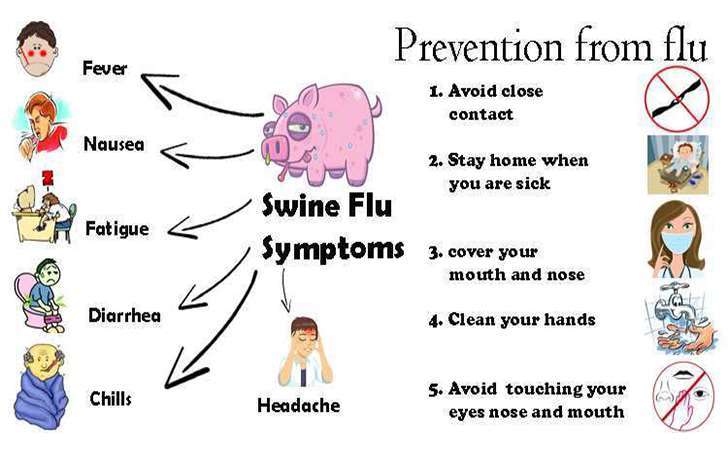
Swine flu in Pakistan: What are the symptoms, how does it spread? Ways to prevent it
Several news sources confirms like: https://www.express.com.pk/epaper/PoPupwindow.aspx?newsID=1104880436&Issue=NP_RYK&Date=20180101
With the mercury dipping to below freezing points in some parts of the country, the cold weather conditions have resulted in the rise in cases of swine flu – a highly contagious respiratory disease caused by one of many Influenza A viruses.
This is because the flu virus is more infectious in cold winter temperatures than during the warmer months. While there are many existing theories on why flu strikes in winter, a study from the National Institute of Child Health and Human Development (NICHD) noted that the virus forms a special outer coating in cold weather that helps it fly through the air and into another person.

Currently, new cases of swine flu, also known as H1N1 influenza, are being reported in several states across the country, including Telangana, which also witnessed a fresh death due to the deadly virus this month. With swine flu cases going up in the last few days, people have been asked to take precautionary measures such as frequent hand washing and avoiding crowded places.
What are the signs and symptoms of swine flu in Pakistan?
The symptoms of swine flu are the same as normal flu – fever, cough, sore throat, body aches, headache, chills, and fatigue. Some people may develop gastrointestinal-like symptoms, like diarrhea and vomiting. Seek medical help if you experience any of these symptoms.
How is it spread and treated in Pakistan?
People who work with poultry and swine, especially those with intense exposures, are at increased risk of zoonotic infection with influenza virus endemic in these animals, and constitute a population of human hosts in which zoonosis and reassortment can co-occur.[19] Vaccination of these workers against influenza and surveillance for new influenza strains among this population may, therefore, be an important public health measure.[20] Transmission of influenza from swine to humans who work with swine was documented in a small surveillance study performed in 2004 at the University of Iowa.[21] This study, among others, forms the basis of a recommendation that people whose jobs involve handling poultry and swine be the focus of increased public health surveillance.[19] Other professions at particular risk of infection are veterinarians and meat processing workers, although the risk of infection for both of these groups is lower than that of farm workers.
Since swine influenza virus is common throughout pig populations worldwide, people with regular exposure to pigs have a greater risk of getting the infection.
Swine flu is spread from person to person through coughing, sneezing or talking by people infected with the influenza. Sometimes people can also be contract swine flu by touching the something with flu viruses on it and then touching their mouth or nose.
Treatment of swine flu
includes taking antiviral medications, pain relievers, rest and fluids.
How can you prevent it?
While vaccination is thought to be the best way to prevent or reduce the chances of becoming infected with influenza viruses, you can take a few steps everyday that can help prevent the spread of germs that cause respiratory infections like flu. These include:
Wash your hands often using soap and water.
Avoid close contact with sick people.
Avoid touching your eyes, nose or mouth as germs can be spread this way.
Stay at home and take rest if you’re unwell or having flu-like illness.
Follow the above guidelines and stay safe this winter!

